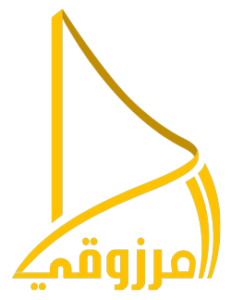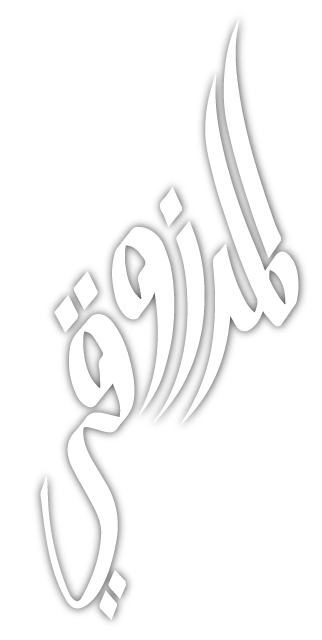Biography
MOHAMED MONCEF MARZOUKI
Former President of the Republic of Tunisia, 2011-2014
Mohamed Moncef Marzouki was the first democratically elected president of Tunisia after the January 14th Revolution in 2011, a seminal moment in modern Arab history which heralded the onset of multiple popular revolutions throughout the Arab World. Elected to the presidency by the Tunisian National Constituent Assembly, President Marzouki is Tunisia’s first president in modern history to arrive at his position through fair and transparent elections. Upon the assumption of the presidency,. Moncef Marzouki embarked on mission to “open the doors” of the presidential palace through campaigns of transparency, participative democracy, and by encouraging a safe public space for civil organizations to flourish. During his mandate, Moncef Marzouki was a voice of social and revolutionary activism, calling for civilian rights, curtailment of the security apparatus, and economic sovereignty, and transformed the presidency into a position of service to the Tunisian public. Occupying a middle ground between secularist and Islamist political standpoints, Moncef Marzouki was instrumental in creating a dialogue between all political, social, and religious tendencies in Tunisia, clearing the ground for an inclusive, stable, and consensus-based Tunisian democracy to take root.
Moncef Marzouki is a doctor of medicine, a human rights activist, an author of numerous works on political philosophy in the Arab world, and founder of the center-left Congress Party for the Republic (CPR), which was one of the parties that formed the governmental coalition from November 2011 to February 2014. In 2015, Dr. Marzouki founded the Movement for Popular Citizenship (“Harak al sha’b al muwatineen”), a civil movement seeking to encourage active citizen participation amongst all Tunisians, particularly those marginalized under previous regimes.
Dr. Marzouki was born on July 7, 1945 in Grombalia in northeastern Tunisia and grew up in the capital city of Tunis, where he attended the prestigious Sadiki School. Due to his father’s political activism, Marzouki’s family was forced into exile in Morocco where he spent the remainder of his youth. Leaving Morocco to continue his education in France, Marzoukiearned his medical degree from the University of Strasbourg in1973 and went on to practice medicine as a specialist in preventive medicine and neurology. He also has a degree in psychology from the Faculty of Arts of Strasbourg.
Returning to Tunisia in 1979, H.E Marzouki lectured in medicine at the Medical University of Sousse until he was sacked in 2000 for his political activism.. In 1980, he joined the Tunisian League for the Defense of Human Rights, of which he became chairman in 1989.
In 1993, he was referred to justice after creating the National Committee for the Defense of Political Prisoners. In response to his dismissal from the chairmanship of the league due to political pressure, he stood for presidential elections in opposition to former dictator, Zine el-Abedine Ben Ali. He was subsequently imprisoned by the security apparatus and put in solitary confinement in March 1994. H.E Moncef Marzouki was released in June of the same year following a national and international campaign and the intervention of South African President, Nelson Mandela.
In 1997, Marzouki and a number of activists created the Arab Commission for Human Rights which he chaired until 2000. A year later, he and many Tunisian activists and political organizationsclandestinely created the National Council for Liberty. In the same year, he also created the Congress Party for the Republic (CPR), which was declared an illegal organization by the Ben Ali regime. From that time, Marzouki announced that his party was a resistance movement, not an opposition one. Through the CPR, he called for deposing President Ben Ali instead of attempting to reform it. Consequently, H.E Marzouki was sentenced to one year of prison. This sentence brought international pressure on the Tunisian government, following which H.E Marzouki immigrated to France where he continued his struggle in exile through his political publications and activities in human rights organizations.
Marzouki returned to Tunisia in 2011 after Ben Ali fled the country and was elected by the Tunisian National Constituent Assembly as the first president of the newly democratic Tunisia.
Curriculum Vitae
Mohamed Moncef Marzouki
Born on July7th, 1945 in Grombalia-Tunisia.
Married, with two daughters.
Educational and professional background:
- 1964: Received his Baccalaureate Diploma from Tangier French Secondary High School in Morocco.
- 1963: Awarded the annual prize of the school and was accordingly granted a scholarship by the French government.
- Studied medicine and psychology at the University of Strasbourg.
- 1973: Doctor-in-residence at the Strasbourg University Hospital.
- 1973: His doctoral dissertation on the topic of medical deontology was accepted in the same year(under the supervision of Professor Marc Klein; title: "Human Experimentation in Medicine"; it was published in Paris under the title "L'arrache-corps", and was also translated into Spanish).
- 1973: Awarded a doctoral degree in medicine by the state of France.
- 1973-1977: Worked in the Department of Pulmonary Disease and the Department of Endocrinology and neurology at the hospital of Strasbourg France
- Was awarded a silver medal during his residency in recognition of his research on the incident of strokes amongst young people.
- 1977–1979: Appointed Assistant Director of Internal Medicine in the Civil Hospital of Strasbourg.
- At the end of this training session, he was accredited with three Bachelor’s Degrees: one in Neurology, one in Internal Medicine, and one in Public Health.
- 1979-1982: Appointed Assistant Professor in the Department of Neurology in Tunis
- 1982: Appointed Associate Professor in Social Medicine where he carried out intensive work over twenty years in medicine on behalf of the most needy and the poorest Tunisians through programs targeting collective health.
- 1982: Was awarded the Medicine Prize of the Maghreb.
- 1988: Was awarded the prize of Arab Medical Congress.
- 1989: Was awarded the prizename of prize?by the National Academy of Sciences of the United States of America.
- 1991: Appointed Professor of Public Health at the Medical University of Sousse.
- July 2000: Expelled from the University of Sousse due to his vocal criticism of the Ben Ali regime.
- 2001 - 2004: Appointed Professor of Public Health in the University Hospital of Bobigny, 13th District of Paris, under the supervision of Professor Antoine Lazarus.
- 2004 -2011: Appointed Project Officer at Créteil-Val De Marne Health Network where he was responsible for health education among foreigners and new immigrants to France in the three districts of Créteil.
In the field of Human Rights:
- 1989 - 1994: President of the Tunisian League for Human Rights (the TLHR was a co-recipient of the 2015 Nobel Peace Prize).
- 1997 – 2000: President of the Arab Commission for Human Rights.
- 2000 - 2003: President of the African Network for Prevention of Child Abuse and Neglect (ANPCAN).
- 1998 - 2000: Spokesman of the National Council for Liberties in Tunisia.
- Recipient of the Human Rights Watch Prize in 1994 and the Kemp Prize for the Rights of the Child in 1996.
- Founded the Congress for the Republic Party in July 2001, a party which remained prohibited until March 8, 2011.
- Tried unsuccessfully to return to Tunisia in 2004, 2005, and 2006.
- Returned to Tunisia in January 2011 after the success of the Tunisian “Revolution for Dignity” that toppled the Ben Ali dictatorship.
- Elected as deputy to the National Constituent Assembly on October 23, 2011.
- Elected President of the Republic of Tunisia with a two-third majority of votes in the National Constituent Assembly on December 12, 2011.
- Awarded the 2012 Chatham House Prize (shared withRachedGhannouchi).
- Selected #2 inthe magazine Foreign Policy “Top 100 Global Thinkers”in November 2012.
- In April 2013, Time Magazine published its annual list of the hundred most influential people in the world; Moncef Marzouki was selected in the pioneers category.
His works:
Dr. Marzouki has published more than twenty books in Arabic and French between 1980 and 2011. They treated a variety of topics related to the ideas and ideals of democracy and human rights in Arab-Islamic society.
His publications in Arabic:
- Introduction to Integrative Medicine :Ed. AddarAttunissiaLinnachr (Tunisian Edition House) and Scientific Research Foundation -- designed for physicians and students, 1995.
- Teacher’s Guidebook for Health Education : ed. AddarAljazairyaLinnachr, 1986.
- A Series of Books in Health Education – ed. AddarAlarabya - Tunisia 1984
- History of Medicine for Children – ed. Dar Alif - Tunisia 1982
- Why Will Arab Feet Step on Mars? - ed. Dar Arraï - Tunisia 1982
- Let My Homeland Wake Up! - ed. Dar Al Maghreb Alaraby - Tunisia 1986
- A Prisoner of the Mind - ed. Akwas - Tunisia 1990
- A New Vision - ed. Cairo Institute for Human Rights Studies - Cairo 1996
- Second Independence - ed. Dar AlkounouzAlarabya, Beirut 1996
- Democracy: Are We Worth It? - ed. Dar Alahaly - Damascus 2001
- The Sacred Man:New Understanding of the Universal Declaration of Human Rights - ed. Damascus 2003
- From Ruins to Construction - The Maghreb Center - London 2003
- What Kind of Democracy Are You Talking About? - ed . Dar Alahaly - Damascus 2004
- How Can This Nation Find a Place in the World of Today - ed. Dar Alahaly Damascus -2006
- The Doctor and Death - ed. AddarAttunissiaLinnachr-Tunisia 1983
- A Trip: Five Parts - ed. Dar Alahaly- Damascus 2001-2003
- It's Revolution, O Moulay - ed. Dar AlMutawassitiaLinnachr - Tunisia 2011
- We Win, or We Win - ed. Dar AlMutawasstiaLinnachr - Tunisia 2014
His publications in French:
- L'arrache-corps (The Hard Body): An essay on human experimentation in integrative medicine - ed . Paris 1979. Spanish translation: Elexperimentacionen el ombre - ed. Jugar Madrid 1982.
- Arabes, sivousparliez (O Arabs, If you ever spoke out…) - ed. Lieu Commun, Paris 1987.
- La mort apprivoisée ( Tameddeath) -ed. Du Méridien, Montréal 1990.
- Le mal arabe (The Arab Pain) -ed. L’Hartmann, Paris 2004.

